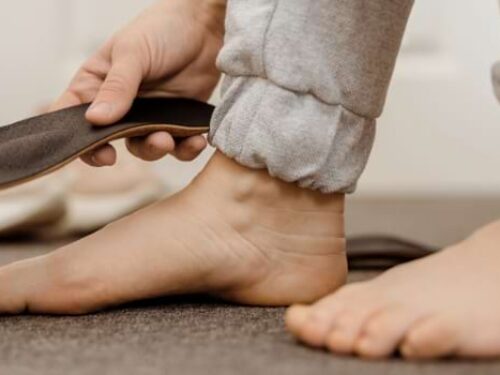
Foot Surgeon in Midtown
If you have diabetes, you must be aware of the potential complications associated. In particular, poor circulation and peripheral nerve damage of the foot are serious matters that can happen if your diabetes is improperly managed. If you are experiencing persistent pain, swelling, localized warmth, or any new or lasting numbness in your feet or legs, this could be a sign that you are experiencing nerve damage.
Diabetic Neuropathy
A common foot-related problem due to diabetes is diabetic neuropathy. This occurs when your sensory nerves become damaged due to excessive blood sugar, therefore rendering you unable to feel heat, cold, or pain in your legs and feet. Without this feeling, it can lead to issues of cuts becoming infected or developing foot ulcers.
Peripheral Vascular Disease
Poor circulation due to atherosclerosis is another diabetic complication that can occur. The hardening and narrowing of blood vessels associated with insulin resistance make it difficult for proper circulation. Your feet are particularly vulnerable due to the distance from your heart. This condition makes it difficult to heal from common sores and cuts because of this, putting you at risk for the development of ulcers or even gangrene.
We Can Help
With help from our podiatric specialists, we can help you manage your diabetes. Your first visit with us should not be at the first sign of a diabetic foot complication; it should be early in your diabetic diagnosis as this allows our team to monitor and potentially prevent serious complications. Our specialized diabetic services include:
-
- Advanced wound care with VAC therapy
- Conservative and surgical care for foot deformities
- Treatment for diabetic neuropathy
- Diabetic shoes
- Preventative care
- Skin substitutes
And more!
Be Proactive!
The first steps to take in order to avoid issues with diabetic foot problems start with diligence at home. Following these steps can help you prevent serious complications:
-
- Hygiene – it’s important to keep your feet clean and moisturized. Make sure to change your socks regularly and avoid walking barefoot as exposure to sharp objects can be even more dangerous.
- Quit Smoking – smoking accelerates damage to the blood vessels and is a major risk factor for foot infections that lead to amputations.
- Wear the proper footwear – try to avoid elastic socks or hosiery that may facilitate poor circulation. Also, make sure you are wearing sturdy comfortable shoes that fit correctly to protect your feet.
- At-home foot examinations – regularly examine your feet in order to check for sores, blisters, calluses, or any open wounds. You will want to make sure to monitor any minor abrasions in order to ensure proper healing takes place.
- Nutrition – make sure to maintain a healthy diet, avoiding excess carbohydrates, sugar, and alcohol. Even if you don’t have diabetic foot complications, excess blood sugar over time can be a catalyst for a whole host of issues.
Make an appointment with us today to get experienced and quality care.


